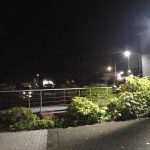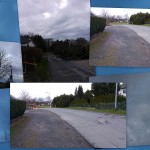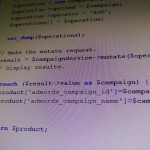1. Introduction
We live in a world where education is often forced, work is tied to fear, and life decisions are locked in too early. This plan is a vision for an alternative system—one that puts freedom, learning, social security, and human growth at its core. It originated from the desire to see people judged not by their background, but by their potential—and to give everyone the tools to reinvent themselves at any point in life.
2. Education
2.1 Foundational Education
Formal schooling is reduced to the essentials: 2 to 4 years of „foundational education“ that teach the basic tools for independent learning:
- Reading, writing, arithmetic
- Analytical thinking
- How to search for and evaluate information
- Basic social and communication skills
2.2 Lifelong, Stage-Based Learning
After foundational training, everyone gains access to lifelong, flexible education:
- Subjects are divided into progressive stages, e.g. Chemistry 1–25, Music 1–10
- People decide when, what, and how quickly they want to learn
- Exams can be taken at any time on a voluntary basis
- No age limits or social barriers
2.3 Access and Implementation
- Courses are publicly available: digitally, on-site, or in hybrid formats
- Learning is practice-oriented via projects, simulations, community involvement
- Certificates are based on portfolios, not on traditional grades
3. Work
3.1 Skills Instead of Job Titles
The job market is based on skills, not rigid professions:
- Employers might require „Chemistry 12 + Biology 7 + Communication 4“
- Applicants present their current verified learning stages
- No résumés, no age bias, no formal degrees required
3.2 Full Flexibility
- Retraining is possible at any time
- Skills from different fields can be combined—an IT expert can pursue philosophy or craftsmanship
- There are no “career downgrades,” only development paths
4. Social Security
4.1 Universal Basic Income
Every person receives a monthly basic income, ensuring survival without coercion:
- Granted for life, from birth
- Covers housing, food, healthcare, education
- No forced labor, no punitive systems
4.2 Space for Real Choices
- People can focus on caregiving, creativity, or community work
- Wrong turns are allowed—career changes are normal
- No one loses their dignity due to illness, caretaking, or personal development
5. Societal Effects
- Improved mental health, reduced burnout
- Greater innovation through intrinsic learning
- Breakdown of class-based education gaps
- A more agile job market and rich cultural exchange
- Stronger communities formed through collaboration, not competition
6. Funding Ideas
This model is feasible given today’s technology and economy. Potential funding mechanisms:
- Automation tax (a share of automated value creation)
- Data and platform dividend (“digital common wealth”)
- Financial transaction tax
- Commons-based funds for natural resources, energy, water
- Redistribution of ineffective subsidies
7. Invitation to Co-Create
This plan is not a doctrine, but an open draft. It’s an invitation to reflect, rethink, and contribute. Perhaps someone will read it and take it further—or simply use it to plant a new idea.
8. Skill Verification & Data Privacy
8.1 Central, Voluntary Skill Database
- Each person has a secure, personal profile where all completed learning stages (skills) are stored.
- The data belongs solely to the individual – no access is granted without explicit consent.
8.2 Employer Access: Selective and Purpose-Bound
- During job applications, employers can query specific skills (e.g. “Does person X have Chemistry 12?”).
- The system responds with a simple yes/no – no access to other skills, no access to learning history.
- Alternatively, the applicant can generate a signature link that grants access to a chosen skill set.
8.3 Privacy Protection
- No profiling, no behavioral tracking, no penalty for dropped or delayed learning.
- No data sharing with third parties.
- All queries are logged and visible to the user for full transparency.
The future often begins as a quiet thought.







Neuste Kommentare